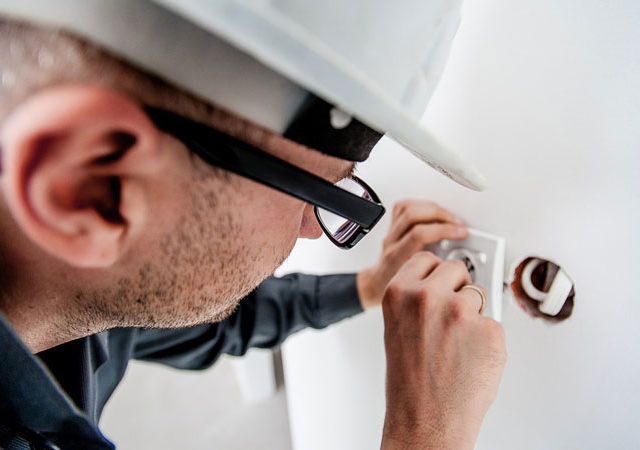Two thirds (64%) of UK adults believe engineering jobs are crucial to addressing society’s biggest challenges like climate change, according to new polling research commissioned by the Royal Academy of Engineering for National Engineering Day. But outdated perceptions of the profession – particularly among young people – could hold back the UK’s transition to a sustainable, low-carbon economy.
The research shows three quarters (75%) of people think sustainable innovation and inventions are as important in mitigating climate change as changes to consumer behaviour (73%) or government legislation (71%). While 42% of people say they don’t know much about what people in engineering do, or what the job involves, they understand its relevance – with 60% of people thinking engineering should be taught as part of the curriculum at secondary school and half (51%) thinking the same of primary school.
Despite this, the polling also indicated that the stereotype that engineering roles are better suited to men still prevails, with nearly a fifth (18%) of people holding this view. This misperception is most prominent in the younger generation, with more than a quarter (28%) of 18-34-year-olds believing engineering jobs are better suited to men, compared to just 10% of over 55s. Similarly, 39% of 18-34-year-olds believe the myth that engineering jobs are mainly based in factories and building sites, compared to just 13% of over 55s.
These misperceptions threaten to put people off careers in the profession, at a time when the UK needs many more engineers to meet its net zero goals. For example, the UK energy sector needs to fill 400,000 roles by 2050, around 260,000 of which will be newly created. In the housing sector, retrofitting will require the recruitment of 30,000 technicians each year at its peak in 5 to 10 years’ time. This is on top of “business as usual” needs.
In response, the Royal Academy of Engineering is busting these myths by showing the nation that everyone has the potential to be an engineer. Today, on National Engineering Day, the charity encourages the public to vote on This is Engineering’s social media channels for the winner of the “Everyday Engineering” competition it has been running throughout October in partnership with Dragons’ Den investor Deborah Meaden. The competition invited the public to release their “inner engineer” by submitting ideas and creations that aim to make daily life more sustainable. It has served as a reminder that everyone has the capability to think like an engineer and that engineering habits – like problem spotting and creative problem solving – can come from anyone.
The three finalists announced today include:
-
Eleria’s Menstrual Cup Portable Cleaning and Sterilising Case, invented by Bristol-based Kira Goode (24) and Monica Wai, (24)
Eleria is a portable cleaning and sterilising case suitable for all size A menstrual cups, making the public toilet cleaning and at home sterilising processes quicker, simpler and more discreet.
In the average menstruator’s lifetime, the person will send 2 minibuses full of menstrual product waste to landfill, and spend around £5,000 on those products, the equivalent of buying a latte every day for the next 4 years. Eleria makes reusable menstrual cups, a more sustainable alternative to other menstrual products, a more practical and appealing option to more people.
-
Phyto, a hanging pendant light made from 3D printed ‘nuisance’ algae-based bioplastic, invented by Sam Bird Smith (23, London)
The Phyto Light is made from nuisance algae, which when allowed to spread out of control, can damage surrounding marine life. This algae is extracted from the water before being dried and processed into bioplastic, leaving behind clean water and a healthy ecosystem. This process not only creates a new, sustainable material, but also protects marine life and provides local areas with clean water.
-
EcoPonics, a customisable vertical farming unit for gardens, invented by Anvith Sujay (16, Bristol) and Ashwin Madhusudhanan (15, Bristol)
Each 0.5m cube, or ‘cell’ has space for multiple plants and contains a pink LED light, allowing for the fastest rate of photosynthesis. and a piping system to allow for the water to easily be changed, as the cells use hydroponics. EcoPonic saves space in gardens, allowing more plants to be grown per area and more efficiently, without the need for fertilisers.
The live vote on social media will decide the winning entry, with Deborah Meaden announcing the winner on her social channels at the weekend. They will win the opportunity to meet Deborah and get her advice on their idea, as well as an award from the Royal Academy of Engineering and a mentoring session from its Enterprise Hub.
Dr Hayaatun Sillem CBE, CEO of the Royal Academy of Engineering, said: “It’s been brilliant to see such creative and original ideas for sustainable inventions and to have discovered our three ‘everyday engineer’ finalists. I’m delighted to see people getting into the engineering mindset and coming up with such good ideas, and I encourage everyone to vote for their favourites.
“There has never been a more urgent need for engineering expertise to provide practical solutions and help to build a sustainable future. We must continue to challenge the myths about who can be an engineer and we hope that – through National Engineering Day – we can raise awareness of the vital role of engineers in society and encourage more young people across the nation to consider this rewarding career path.”
Successful entrepreneur and Dragons’ Den Investor, Deborah Meaden, said: “Sustainable inventions and the businesses that come out of them will be the key to meeting the UK’s net zero goals and tackling climate change. These inventions would not be possible without the engineers who create them. It’s been fantastic to be part of a competition that embraces these values, and I’ve loved seeing the ideas people came up with. These finalists showcase that everyone has the capability to think like an engineer and create something that positively impacts both people and planet.”




